THE BLASPHEMY LAW PROJECT
The Law
The law (section 295-C of Pakistan Penal Code) holds that anyone convicted of the offense of blasphemy against the prophet Muhammad is to be awarded a fixed death penalty, with no possibility of a pardon or waiver.
1. Impact of the Problem
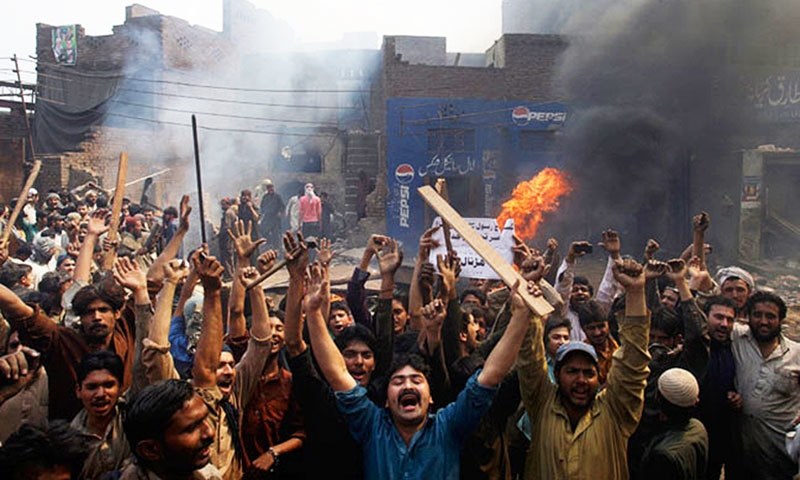
Mobs rampaged through the Joseph Colony neighbourhood of Lahore in March last year after blasphemy allegations against Sawan Masih emerged. —AFP
1.1. Exponential Increase in Blasphemy Accusations
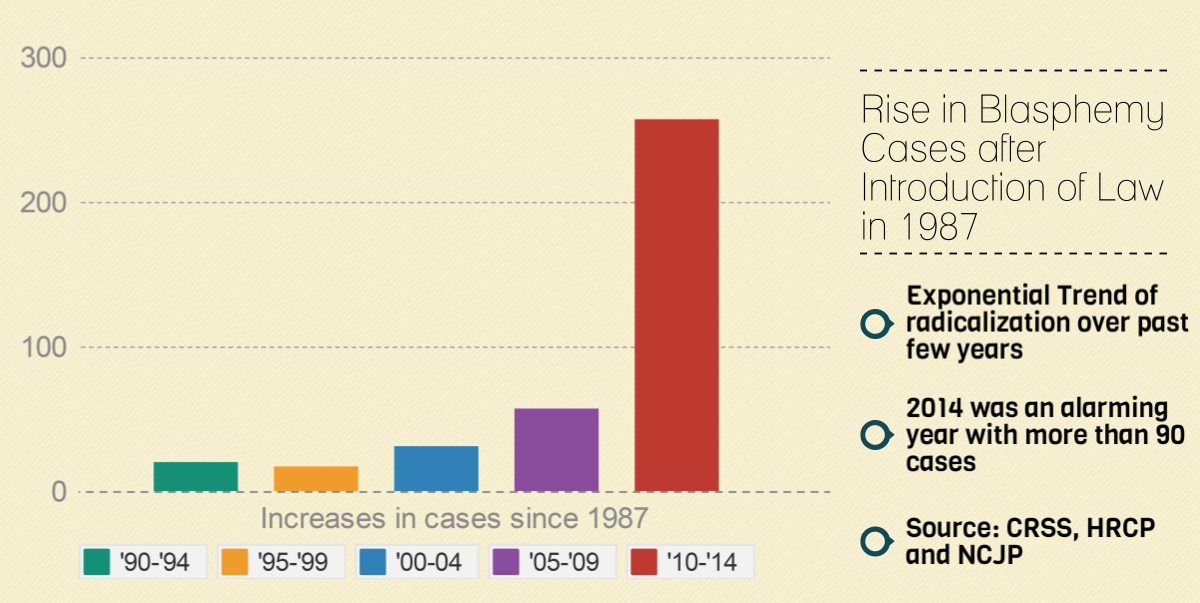
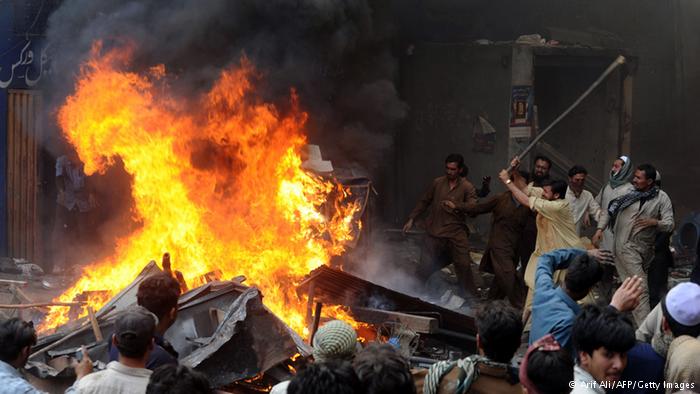
Angry Pakistani demonstrators torch Christian's belongings during a protest over a blasphemy row in a Christian.
1.2. The Impact: Increase in Accusations by 17,500%
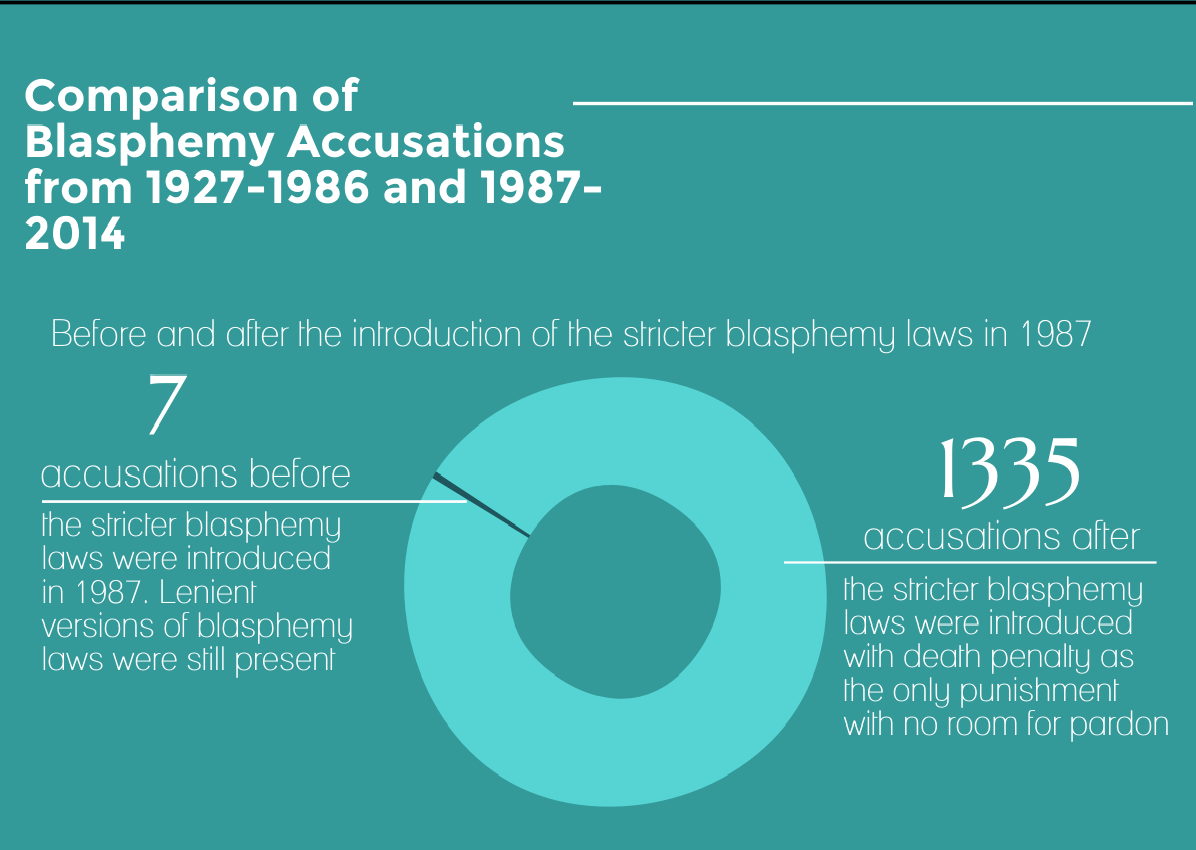
Since the introduction of the more stringent form of the law, blasphemy accusations increased by around 17500 %. This staggering increase in the number of individuals accused of the offence shows that the law has been used as a tool of persecution and oppression. People did not simply become dramatically more 'blasphemous'. Rather, these numbers show that the blasphemy law has been understood to be a viable legal means to target groups and individuals, and has been used as such.
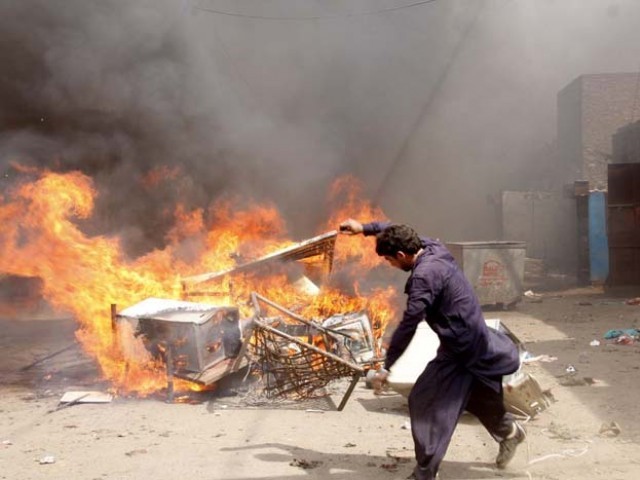
Alleged blasphemy: Mob burns scores of Christian homes in Lahore – The Express Tribune
1.3. The Impact: Increase in Vigilante Violence by 2750%
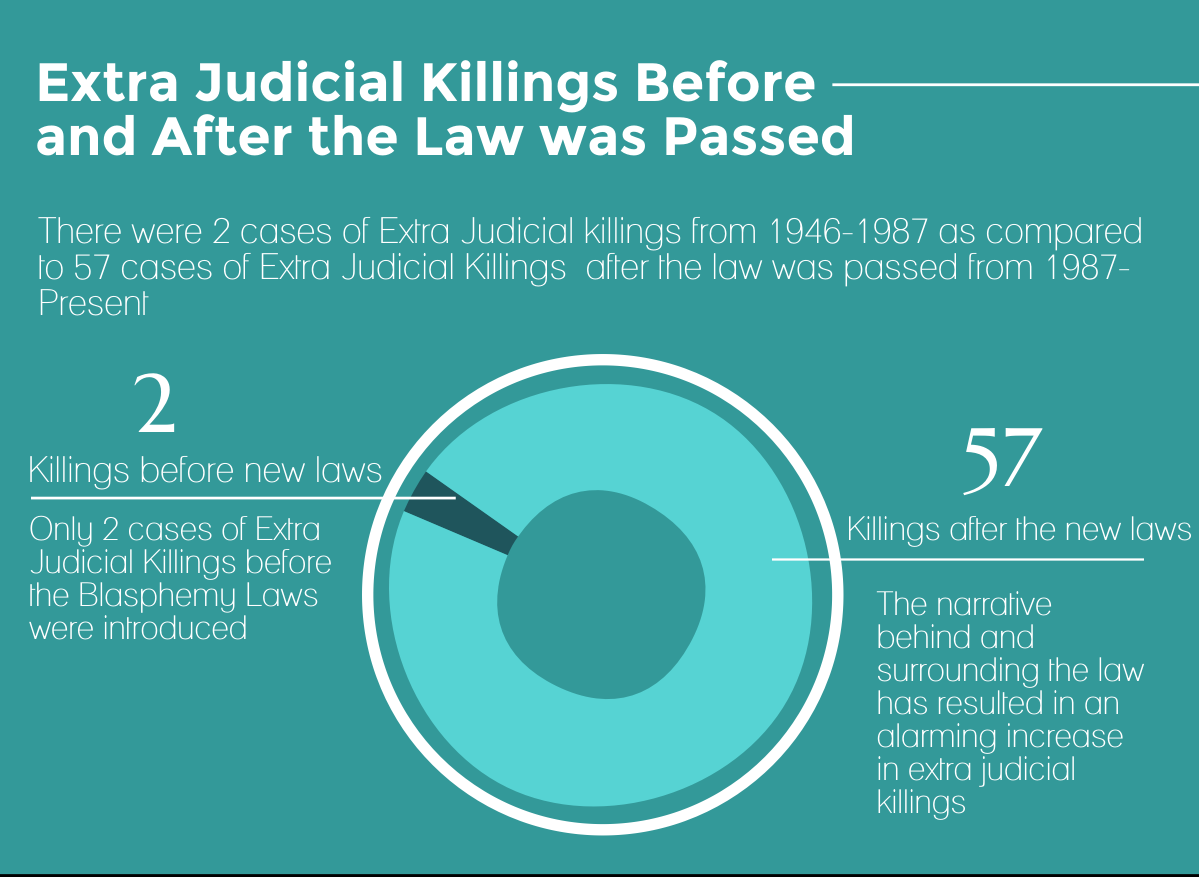
The social narrative attached to the perception of blasphemy, and perpetuated by the law, has resulted in an increase in extra-judicial or vigilante killings, by 2750%.
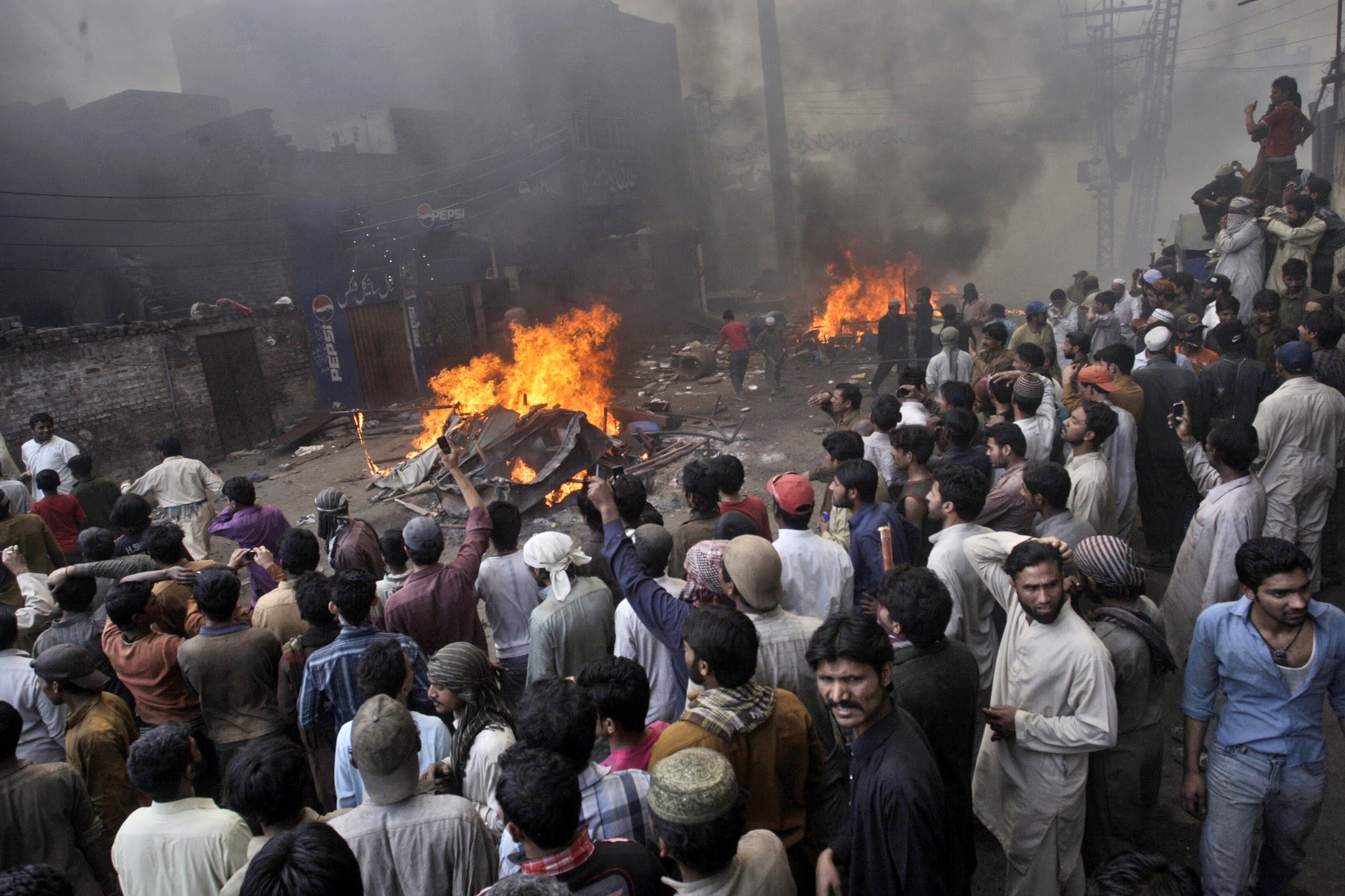
Couple Beaten, Burned By Mob For Alleged Blasphemy
1.4. The Impact: Persecution of Religious Minorities
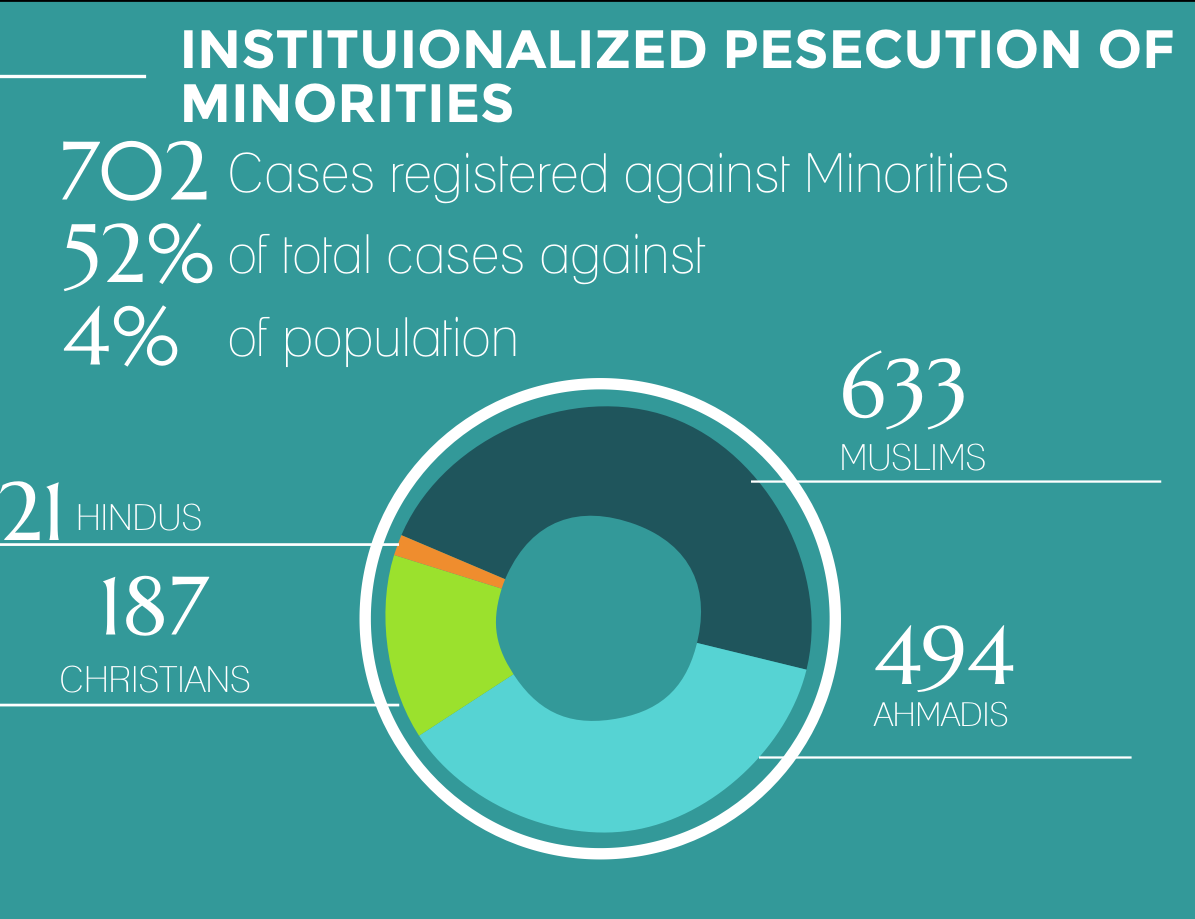
Disproportionate number of cases registered particularly against religious minorities, that represent a small percentage of the total population, fostering a climate of extreme religious intolerance in the region.
2. Defining the Problem
2.1. Perception of the Law as Divine
The law has gathered mass support through its conceptualization as a divine decree that cannot be tampered with. The strength of this law is rooted in this conviction as well as the perpetual promotion of this idea through legal and socio-political institutions of religious authority.
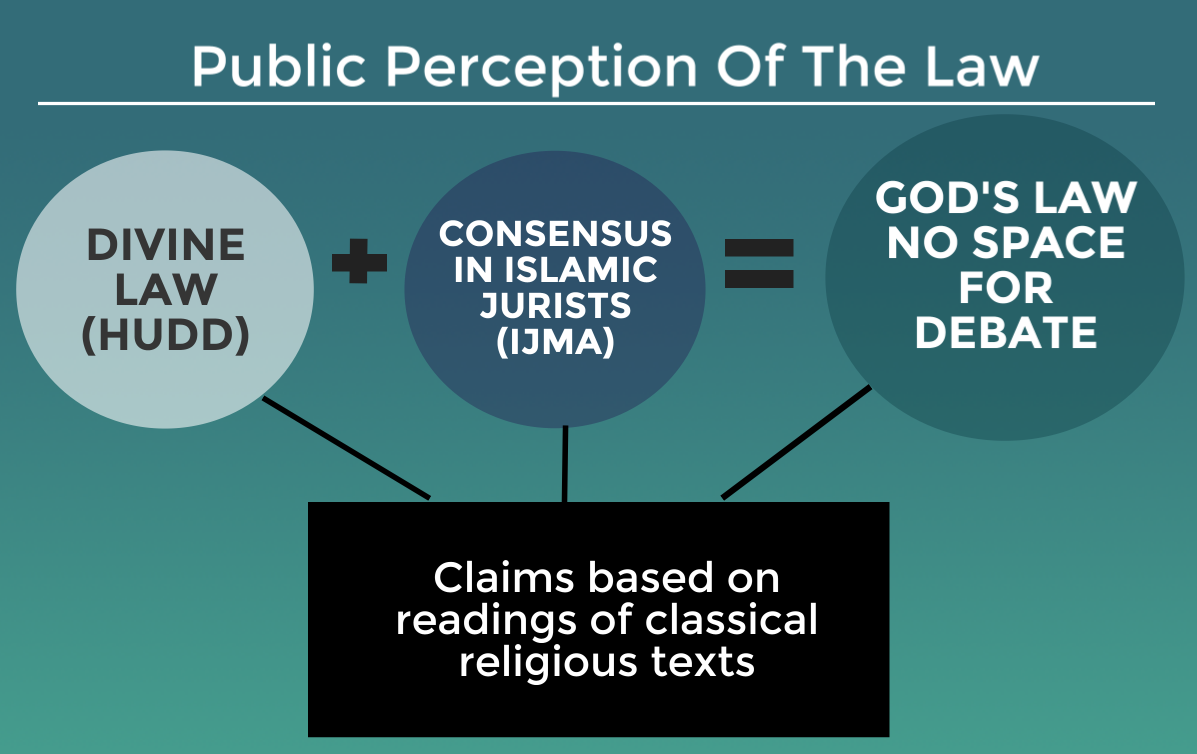
3. Solving the Problem
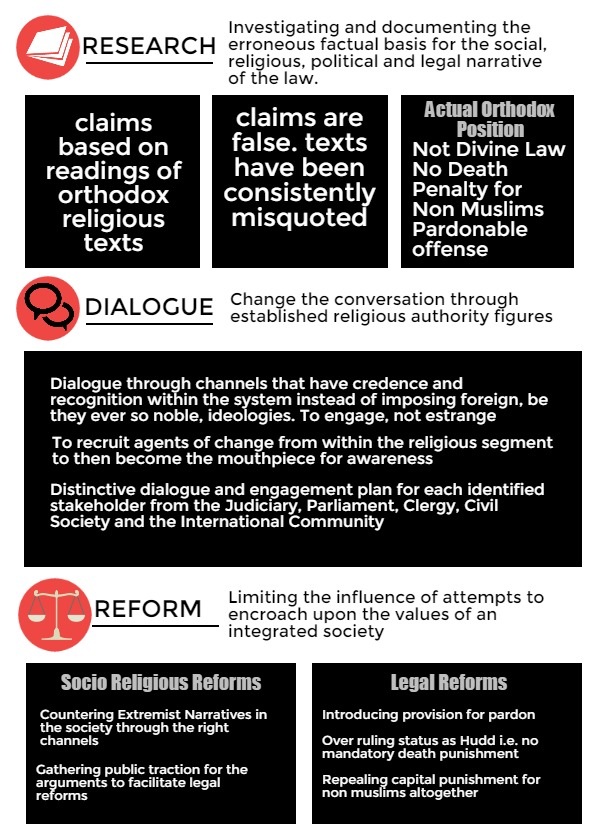
4. Why us?
4.1. Why previous attempt at reform have failed
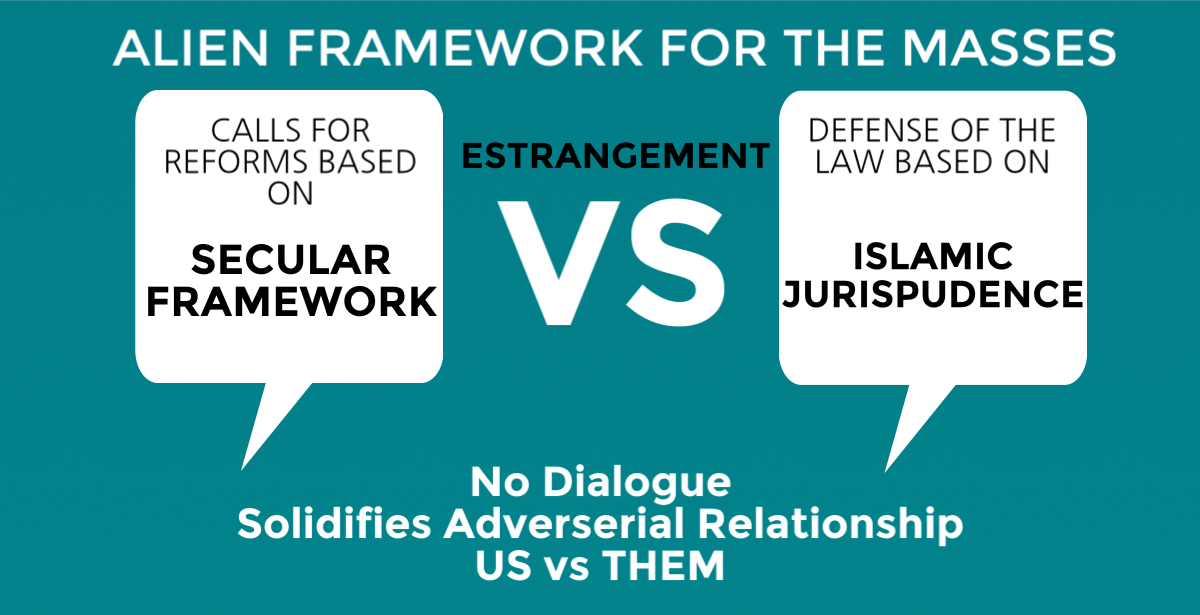
4.2. How are we different?

5. What are we doing?
Fatwa Drive
Local: Going to every major Madrassah (Seminary) and collecting Fatwas (Legal Opinion) and traditional texts that state the authentic Hanafi stance and echo our findings. This includes community-level dissemination of these fatwas to prayer leaders of local mosques.
International: A similar fatwa collection campaign from authoritative fatwa-issuing institutions around the world.
Workshops
De-radicalization workshops in major colleges and universities by traditional ulama (clerics) over the first 6 months.
Workshops with other non-profit organizations and activist groups highlighting the need to engage through culturally relevant frameworks.
Legal Handbook
Improving quality of legal counsel available to those charged under the blasphemy law by publishing a legal guidebook for advocates defending them.
Library
Establishing a comprehensive library of modern and classical texts that further clarifies and solidifies the intellectual foundations of our narrative. Commission translation of these works from Arabic to Urdu.
Establishing Research Wing
Ongoing research into the historical and political context of the law for developing informed strategies for countering radical narratives through a team of dedicated and qualified research personnel.
Regularly publishing research geared towards academic circles, to stimulate further independent inquiry into the subject.
To frame and present research for the layperson via well regarded local as well as international media.
6. WHO ARE WE?
Our core team consists of religious academics, lawyers, a psychologist and development sector professionals. Through our advisory panel, we have access to a diverse network of resources, from orthodox ulama from across Pakistan to progressive scholars and academics around the globe.
7. WHAT HAVE WE DONE SO FAR?
- Groundbreaking research that uncovers factual inaccuracies in the foundation of the law Research presented at:
- "IAS-LUMS Conference - New Horizons in Islamic Area Studies: Encounters, Reflections & Collaborations" - Lahore, Pakistan, Organized by NIHU Program for Islamic Area Studies, Waseda University. November 2nd-4th, 2013
- "Freedom of religion and expression in the Islamic tradition" - Istanbul, Turkey organized by Oslo Coalition on Freedom of Religion or Belief, University of Oslo. August 22nd-24th, 2014
- Research being published by Norwegian Center for Human Rights
- An ongoing five part series "The Untold Story of Pakistan's Blasphemy Law" published by a leading news daily (Dawn.com).
- The Untold Story of Pakistan's Blasphemy Law
- The fatwa that can change Pakistan's blasphemy narrative
- The Politics of Pakistan's Blasphemy Law
- Work commended by Nicholas Kristoff in New York Times
- Our team advised Justice Project Pakistan (a non profit organization) on a Supreme Court blasphemy case.
8. Long Term Vision
- Creating space for dialogue and debate, strategically engaging all stakeholders working towards a society where the minority segment are not systemically targeted using Legal Devices or Religious Instruments.
- Countering the increasingly radical impact of “Otherising” narratives.
- Limiting the influence of attempts to encroach upon the values of an integrated society through Research, Dialogue and Reform.
